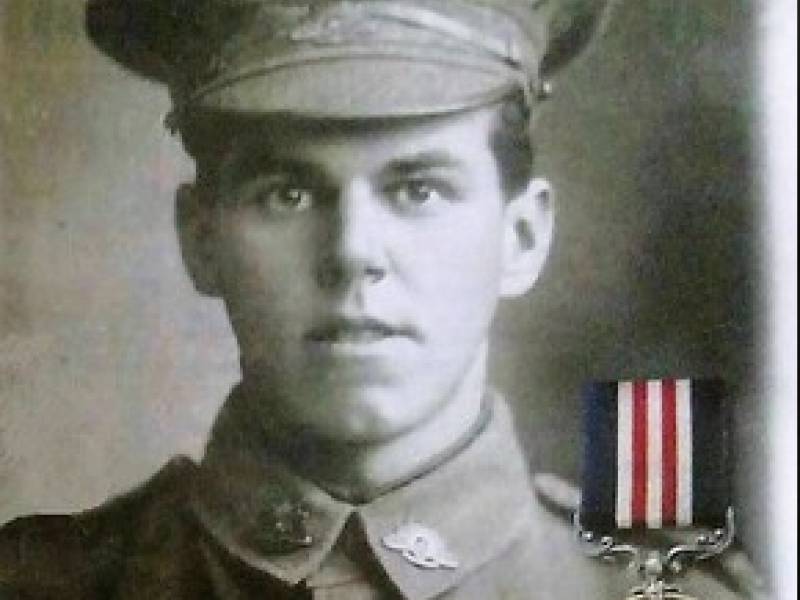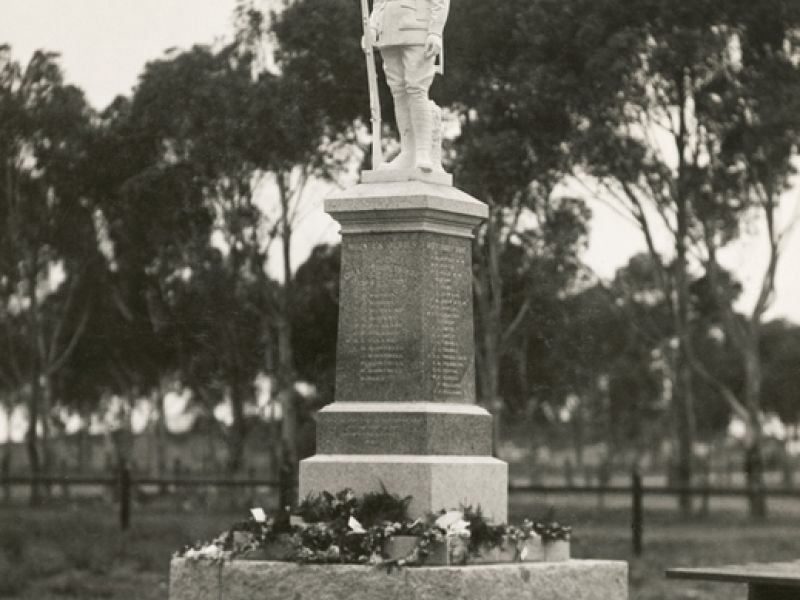Lance Corporal Reuben Rose, 43rd Battalion, AIF
Reuben Rose was born in 1895, one of nine children to Reuben and Isabella Rose of Moonta Mines, South Australia. He attended East Moonta Public School, then was an assistant assayer at Wallaroo Mines and the Devon Concentrating Plant.
He was active in community activities, including parading with the 81st (Wakefield) Infantry Regiment, and singing with the Moonta Mines Male Voice Choir. He was secretary of both the East Moonta Football Club and the East Moonta South Sunday School. Rose was “looked upon as the life of the party”.
Rose enlisted in the Australian Imperial Force in January 1916, and embarked as an original member of the 43rd Battalion. He arrived on the Western Front in November 1916.
The 43rd Battalion filed into the trenches for the first time outside the town of Armentières and spent the following months patrolling and trench raiding. Mustered into his platoon’s Lewis gun section, Rose participated in his first major action at Messines on 6 June 1917, and later at Broodseinde and Passchendaele during the Third Battle of Ypres.
In February 1918, the fighting on the Western Front had become critical. German troops had launched a major offensive on the Somme which had broken the stalemate of trench warfare and overrun parts of the British lines. They were aiming for the city of Amiens in the hope of splitting the British and French armies on the Somme River. The 43rd Battalion was rushed south to defend Amiens.
When the German offensive ended in April, the Allies prepared their own counter-offensive. On 8 August 1918, Australian troops, including the 43rd Battalion, spearheaded the assault that broke through German lines, known as the “black day of the German army”.
During this action, Lance Corporal Rose outflanked and rushed an enemy machine-gun position. At close quarters with his Lewis gun, he single-handedly silenced the position, allowing his section to continue their advance. For his “bravery and determination to duty” he was awarded the Military Medal.
The 43rd Battalion continued fighting along the Somme River into German-occupied territory. On 26 August 1918, it occupied a hill that overlooked the village of Suzanne. C Company attacked, drawing German machine-gun and artillery fire, and the Australians took Suzanne.
However, Reuben Rose was killed in the attack when a German artillery shell landed among his Lewis gun team. He was 23 years old.
Rose was buried with three other men in a nearby shell hole overlooking Suzanne but his grave was lost in the fighting. It is likely that his body was recovered by a war grave registration unit and reburied in the nearby Assevillers New British Cemetery.
Reuben Rose is commemorated on the Australian National Memorial at Villers-Bretonneux, among 10,737 Australian troops killed in France who have no known grave. His grieving family inserted an epitaph in the local newspaper:
At the heavenly gate he’ll meet us,
With the same sweet loving smile.
For we are only parted
Just for this little while.
Aaron Pegram, Historian, Military History Section

 Australian War Memorial
Australian War Memorial